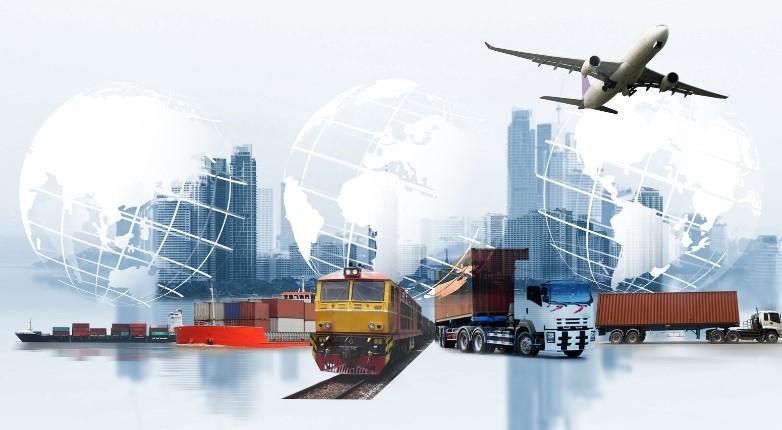Businesses are always trying to remain competitive and operate effectively in the fast-moving globalized market of today. Advancement in technology, change in customer preferences as well as increased emphasis on sustainability have led to a complete turnaround of logistics and operations, which is witnessed as an integral part of such attempts.
As we enter the modern era, the way companies manage their supply chains and operational workflows is evolving rapidly.
The Role of Technology in Modernizing Logistics

The incorporation of technology is a key driver in changing how logistics and operations work. Many companies have been able to monitor their supply chains as well as manage and optimize them by using Artificial Intelligence (AI), the Internet of Things (IoT), big data, and automation.
AI-driven analytics enable predictive modeling and demand forecasting, which help companies make data-backed decisions on supply chain planning, inventory management, and route optimization.
IoT sensors embedded in shipments and vehicles provide real-time tracking, offering greater transparency into the movement of goods. Automation in warehouses, such as robotic arms and drones, can improve efficiency by speeding up inventory management and reducing human error.
These technologies not only improve efficiency but also enhance the customer experience by ensuring faster delivery times and more accurate tracking.
The Shift Toward Sustainability in Logistics
In today’s logistics, sustainability has become a priority as opposed to being just an option. Many people, including buyers, are asking for products and services that have little effect on the environment.
As a result, organizations have been forced to incorporate green logistics within their systems so that they may decrease the amount of carbon emitted through transportation and warehousing.
There is an increasing use of electric cars in delivering goods over short distances which are better for the environment than petrol ones. Besides, companies now plan their paths better to cut on fuel and reduce the level of toxic fumes released into the atmosphere.
Sustainable packaging and warehouse energy efficiency are also key areas of focus, with many companies striving to reduce waste and improve their overall environmental impact.
The Importance of Agility and Flexibility
Nowadays, logistics and operations personnel need to be very flexible because so many things can go wrong, either due to nature, politics or a worldwide disease outbreak.
It is important for organizations to be able to respond immediately to any changes that may arise in the supply chain, such as adapting to new laws on shipping or dealing with unexpected surges of orders.
To ensure businesses can be able to tackle unforeseen challenges, it is important for them to have flexible logistics which includes using different transportation systems, having many suppliers and employing various methods of order fulfillment.
Business organizations with agile supply chains can bounce back easily from shock or crisis, and even take advantage of emerging prospects better compared to their rivals.
The Impact of E-commerce on Operations
Logistics and operations have greatly changed following the emergence of e-commerce.
The need for quick and dependable delivery services has gone up immensely, making companies be more creative with their operations so as to keep at par with the ever-changing consumer demands.
In the present day, clients demand for immediate deliveries which organizations achieve by integrating sophisticated inventory control packages and creating additional local warehouses as well as other investments like regional fulfillment centers.
It is now imperative for businesses to adopt omnichannel fulfillment strategies which involve controlling online as well as offline stores at the same time.
A smooth flow of operations from online orders to in-store pickups and delivery alternatives not only enhances customer satisfaction but also helps in optimizing processes.
Final Thoughts
Businesses must transform their logistics and operations to stay ahead in today’s highly competitive environment.
Factors such as technological advancements, sustainability, the importance of being flexible as well as e-commerce development that keeps on influencing the transformation of supply chains, make this process inevitable.
By adopting these changes, companies can develop supply chains that are not only adaptable and eco-friendly but also meet the needs of contemporary customers, which helps them stay ahead of competition.
Author Profile

- Blogger by Passion | Contributor to many Business Blogs in the United Kingdom | Fascinated to Write Blogs in Business & Startup Niches |
Latest entries
 FinanceFebruary 26, 2026Centrepay End Dates Make Repayments More Predictable for Centrelink Borrowers
FinanceFebruary 26, 2026Centrepay End Dates Make Repayments More Predictable for Centrelink Borrowers FinanceFebruary 26, 2026Payday Loans Get Better Product Matching Under Target Market Rules
FinanceFebruary 26, 2026Payday Loans Get Better Product Matching Under Target Market Rules FinanceFebruary 7, 2026The Main Types of Online Fundraising Used by Charities
FinanceFebruary 7, 2026The Main Types of Online Fundraising Used by Charities BusinessJanuary 9, 20266 Fastest Cash House Buyers in the UK 2026
BusinessJanuary 9, 20266 Fastest Cash House Buyers in the UK 2026






